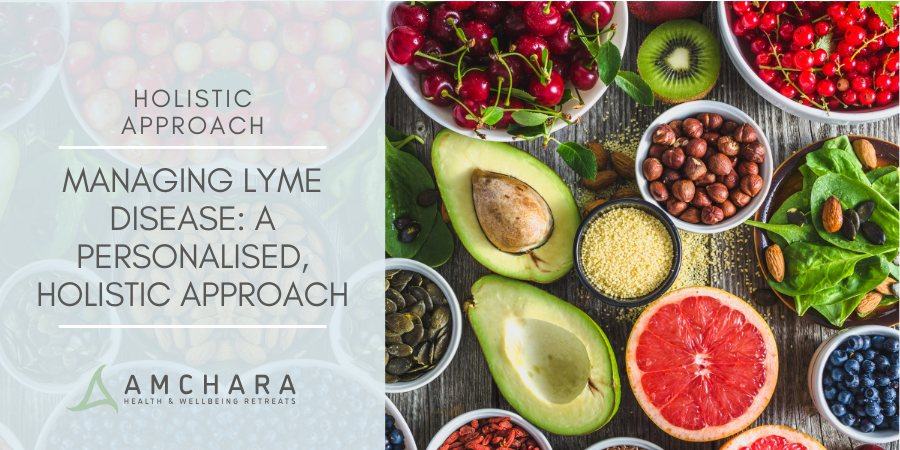Scientific research has recently turned its attention to how we can discover the secrets behind living longer, by learning about the science of ageing.
As lifespan increases, physical or mental ill health in old age could become the largest percentage of our life.
Should we really be concerned about extending lifespan if so much of those extra years are taken up with ailments and diseases which affect our wellbeing?
Should we not instead be concentrating on increasing the amount of time we are healthy, irrespective of our overall lifespan?
Move over lifespan – bring on healthspan.
Increasing Lifespan
There’s no doubt humans are living longer than ever before.
In the UK, the average lifespan stands at 79.2 years for men and 82.9 years for women (1).
Globally, the average length of life has more than doubled since 1900.
This has partly come about because of the eradication of certain diseases and the management of others.
However, reduced deaths from some diseases has perhaps created an opportunity for other chronic illnesses and conditions that are on the rise, such as Type 2 diabetes and Alzheimer’s disease.
It’s estimated a quarter to a half of people aged 85 and over are frail, with reduced mobility and physical dysfunction, even when no diagnosable disease is present (2).
Healthspan vs Lifespan
Healthspan can be defined as the period of life spent in good health – in other words free from disease.
As lifespans increase, although people will benefit from more years on the planet, many of them will spend these extra years with at least one serious disease causing physical and mental ill-health.
This has led to an increasing preoccupation in the scientific community to increasing healthspan rather than lifespan: there’s little gain in living to be one hundred if the last forty years or so are spent suffering from disease.
But we don’t routinely measure healthspan.
The World Health Organization calculates healthy life expectancy as the average age of the first occurrence of the most common serious diseases such as heart disease, stroke, respiratory infections and lung cancer.
In the case of the UK this is 68.4 years (3), meaning on average of 13 years are spent in illness – or almost 16% of an average person’s lifespan.
Senescence and Healthspan
Science has discovered ageing and general frailty with advancing years is caused by a phenomenon known as cellular senescence.
This is the term used for old cells which have become worn out. Such cells don’t function as they should.
They can’t reproduce, but instead they release chemicals which contribute to increased inflammation throughout the body, with the result that healthy cells are harmed and more senescent cells are created.
So senescent cells compromise the functioning of those around them.
As an example, cell senescence has been found to correlate with bone density and atherosclerotic plaques.
Scientists still don’t altogether understand what triggers senescence, but it’s most likely due to DNA damage, oxidative stress and chronic inflammation.
Interestingly, implantation of senescent cells from old animals into young animals causes them to become frail, as if they are old.
This has led science on a quest to eliminate senescent cells, because once they are removed, many features of ageing in older animals are improved. Even if age-related disorders had already developed, once senescent cells were cleared, their development was slowed.
The development of drugs known as senolytics, which aim to eliminate senescent cells, could therefore not only increase lifespan but also potentially reverse the physical and cognitive symptoms of ageing, so also increasing healthspan.
Autophagy and Healthspan
This is the body’s natural process of clearing away damaged cells, a bit like spring cleaning.
If autophagy is inhibited, increased cell senescence occurs (4).
Therefore we need to increase autophagy if we want to avoid senescent cells.
Cell Energy for Increased Healthspan
Every cell in your body uses ATP as an energy source.
The process of producing ATP occurs in the mitochondria of the cell – the power plant of the nucleus.
Symptoms of ageing are largely determined by a decline in mitochondrial function, which means insufficient ATP can be produced.
Mitochondrial dysfunction can lead to many chronic diseases associated with ageing.
Recent research was able to use a drug to restore mitochondrial function by reversing a DNA mutation, resulting in a reduction of physical symptoms of ageing, such as skin wrinkling (5).
Nutrient Sensing
Nutrient sensors – proteins which are so-called because they respond to the presence of nutrients – also appear to influence longevity.
- Insulin-like growth factor (IGF-1) is released in response to sugar and works with insulin to regulate blood glucose, but it also reduces growth hormone release. Low growth hormone in adults is linked with increased risk of cardiovascular disease.
- mTOR senses amino acids from protein in food. It stimulates growth and metabolism but decreases autophagy. So if mTOR is inhibited, autophagy can be increased. The anti-ageing drug Rapamycin which inhibits mTOR when given to mice increased their lifespan by up to 14%. The drug has had similar effects in flies, worms and even dogs.
- AMPK regulates energy metabolism in our cells. It senses when nutrients and calories are scarce. Metformin is a drug usually prescribed for diabetes but which has been investigated for its ability to increase lifespan. It’s been found to activate AMPK. Reduced AMPK can result in oxidative stress, reduced autophagy and inflammation.
- Sirtuins are a class of proteins which respond to nutrient scarcity and which play a role in cell health. These substances have been widely studied in relation to preventing some aspects of ageing.
So these four proteins appear to play key roles in ageing.
Reducing the activity of IGF-1 and mTOR, both concerned with building tissues, may increase healthspan.
An abundance of nutrients increases the activity of these pathways.
On the other hand, increasing the activity of sirtuins and AMPK which break down tissues appears to contribute to longevity.
Their activity increases with nutrient and calorie scarcity.
Calorie Restriction, Fasting and Healthspan
In view of the above, it shouldn’t come as a surprise that restricting calories, with its effect of reducing nutrient sensors which build tissue and increasing those which break down tissue, is associated with an increase in both lifespan and healthspan.
In rats, calorie restriction has been seen to increase lifespan by up to 45% (6), while other research has found some mice given a calorie-restricted diet lived as long as five years of age, the equivalent of 160 years in a human.
Mice usually live just two years, making them ideal candidates for longevity studies.
Humans live much longer, meaning it’s difficult to assess dietary manipulations over an extended period of time.
However, some studies suggest biological markers of ageing are decreased when on a calorie-restricted diet.
Calorie restriction has been found to delay the ageing of blood vessels.
When vessels begin to show the signs of ageing, they become stiffer and less able to deliver blood to organs.
A substance called a ketone, produced by the liver as a food source when calories are scarce, is able to increase the division of cells which line blood vessels and to reduce senescent cells.
The rate of cell division is accepted as a marker of cell youthfulness.
Research has also been carried out on time restricted eating – in other words, fasting for specific periods each day, usually between 16 and 18 hours, so only eating in a 6-8 hour time window.
This appears to improve healthspan, in animals at least (7).
Time restricted eating can also affect brain cells, which has implications for the neurodegenerative diseases that affect the elderly, such as dementia.
It’s thought fasting for several hours per day could change how brain cells respond to stress, in particular reducing oxidative damage to the cell, including the DNA contained inside it.
In neurodegenerative diseases, such as Parkinson’s disease and Alzheimer’s, toxic proteins accumulate in the brain and interfere with the functioning of brain cells, which eventually die.
Research has focused on developing drugs which can seek out and remove these proteins to potentially delay symptoms.
We also know calorie restriction can help to remove these proteins.
Exercise and Healthspan
Regular physical exercise increases mobility and balance, as well as overall quality of life.
Research has found aerobic exercises like cycling or brisk walking in middle to older age are also associated with reduced brain ageing and risk of Alzheimer’s and dementia in older people.
In studies, exercise was found to help the brain become more adaptable and even stimulate the growth of new brain cells in adulthood.
One study in healthy older adults found three hours of aerobic exercise per week for six months actually increased brain volume, especially in the areas concerned with attention and memory, which typically experience loss of volume as people become older (8).
The sporting world is increasingly full of ageing athletes.
Think about the oldest runner to complete the London Marathon aged 87, the 73 year old who swam the English Channel, and the cyclist who, at age 105, cycled 14 miles in one hour.
It’s easy to confuse the effects of ageing with the effects of inactivity.
A sedentary lifestyle can speed up age-related decline. In the UK just 12% of adults aged over 65 meet the NHS guidelines for the recommended amount of aerobic and muscle strengthening exercises (9).
How to Maximise Your Healthspan
Small changes can have profound effects on keeping your body and brain healthy for longer – and it’s never too late to start.
How you live your life today can have a huge impact on your future health.
The following lifestyle and nutritional factors are important for preserving good health at any age:
- Stop smoking. Smoking is associated with a myriad of health issues.
- Drink alcohol only in moderation.
- Sleep long and regularly. Insufficient sleep is linked with poor health because it can increase inflammation, oxidative stress, mitochondrial dysfunction and cellular senescence. Research has also found regular sleep/wake times are correlated with longevity as well as healthier cholesterol levels (10).
- Eat mainly plant based foods. Research has discovered a Mediterranean style diet containing fruit, vegetables, beans, legumes, fish and olive oil may protect against the shrinkage of the brain which occurs in ageing. People consuming a Mediterranean diet had brains similar to those of people five years younger (11). Plant based foods contain an array of antioxidants which may decrease cellular senescence brought on by oxidative stress. Resveratrol, an antioxidant found in grape skins and red wine, has been studied in relation to its ability to reduce senescence and activate AMPK.
- Eat plenty of healthy omega-3 oils which may protect the brain from ageing.
- Quit sugar. Like alcohol, sugar is associated with poor health at any age.
- Reduce your overall calorie intake if you are overweight. Otherwise, think about time restricted eating .
- Exercise regularly. Numerous studies have reported on exercise’s beneficial effects on the ageing process.
- Manage your reaction to stress. Ongoing stress is known to contribute to chronic disease and can shorten lifespan.
Takeaway
Of course we want to live as well as possible for as long as possible. Nobody wants to live to a great age in a state of ill health.
That’s why it’s important to focus on healthspan.
However, it can be argued ageing and the ill health associated with ageing have broadly similar causes, so if we pay attention to nutritional and lifestyle factors which support repair process and so avoid these degenerative changes, lifespan and healthspan will go hand in hand.
If cell damage can be repaired, good health will last longer.
If you would like to maximise your health into older age, even just small nutrition and lifestyle changes can yield lasting results.
A consultation with an experienced Amchara Health Practitioner will provide you with a personalised plan, working with your genes and lifestyle, with a view to supporting your health at any age.
We’re dedicated to providing you with both insightful information and evidence-based content, all orientated towards the Personalised Health approach.
Did you find this article useful?
With your comments let’s continue the conversation.
What are your views on healthy ageing? We would love to know your thoughts.
READ THIS NEXT:




